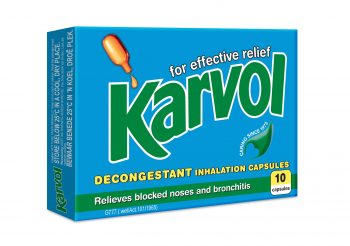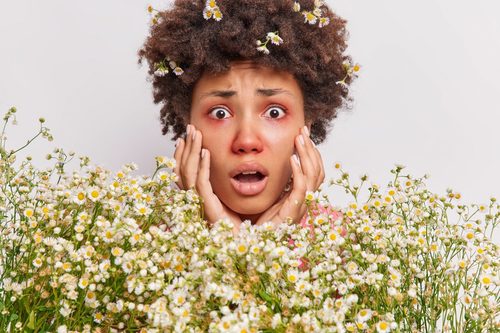It has been a long winter, but warmer weather is definitely on the horizon. Braais, swimming parties, outside living and activities are some of the things to look forward to.
However, those who suffer from summer allergies might be fretting about the upcoming allergy season.
“Up to 30% of the population are dreading the sneezing, scratchy eyes and runny nose that comes with the high pollen count in summer,” explains Bronwyn Ragavan, brand manager for decongestant Karvol.

Image credit: supplied
“However, with proper preparation and proactive measures, you can significantly reduce the impact of allergens on your daily life.”
During World Allergy Week, the theme was “Managing allergic diseases amidst climate change, and educating people on the link between the two”.
Due to the increase in the earth’s temperature, pollen seasons and allergy seasons are starting earlier and lasting longer. The warming of the earth is now able to stimulate the growth of and sustain pollen-producing plants for longer which allows for a higher pollen count than usual.
“When it comes to managing your allergies, especially those who also suffer from asthma, it is important to monitor your symptoms and not to ignore them,” comments Ragavan.
The Allergy Foundation of South Africa has explained that should these symptoms be left untreated there is the potential that they can turn into bigger problems such as ear infections, bronchitis and pneumonia, which can make pre-existing conditions such as asthma worse.
7 ways to prepare for allergy season:
- Have an allergy kit ready for those times when your symptoms start flaring up. This kit can include:
- Tissues for your watering eyes and runny nose as well as to cover your mouth when coughing and sneezing.
- A decongestant will help you to breathe a little easier. Karvol is the perfect allergy companion to help reduce congestion when your allergies are making it hard to breathe. The basic ingredients in Karvol, such as aromatic oils like eucalyptus, camphor, thymol, lavender and menthol which when released actively work together can help with the symptoms of congestion, providing easy breathing and a clear head.
- Eyedrops can help ease the inflammation in your eyes and reduce itching and scratching. Eyedrops with antihistamines will help your eyes before you go outside.
- If you do suffer from asthma, make sure you have an extra inhaler available to help relax the muscles around your airway when suffering from asthma triggered by allergies.
- Moisturisers and creams for when your skin becomes itchy and red due to dry skin caused by allergies.2. Make sure that you check the pollen count in your area. A daily check on the website The Real Pollen Count will allow you to see which irritants are high that day and therefore allow you to make an informed decision about how to protect yourself for the day.
3. Clean your home regularly to rid it of excess dust and pollen that enters your home via open windows, shoes and clothing. It is a good idea to keep your windows closed, clean your air conditioner filter, and wash bedding and curtains regularly.
4. Make sure to drink plenty of water to help thin mucus and ease congestion. This will support overall respiratory health during allergy season.
5. When returning home from being outside, it is a good idea to shower to remove pollen from your skin and hair.
6. Plant low-allergen plants in your garden such as tulips and irises and avoid high-pollen plants like ragweed and sunflowers. When gardening be sure to wear a mask and gloves to reduce direct contact with any allergens.

Image credit: supplied
7. If you have made changes in your life and you are still not feeling any relief, be sure to consult your doctor or an allergist to recommend certain treatments to ease your symptoms.
With proper preparation and a proactive approach, allergy season doesn’t have to be a time of discomfort and frustration. By preparing and actively protecting yourself you can significantly reduce your exposure to allergens, alleviate symptoms, and make the most of the warmer months ahead.
ALSO SEE:
Feature image: Supplied

